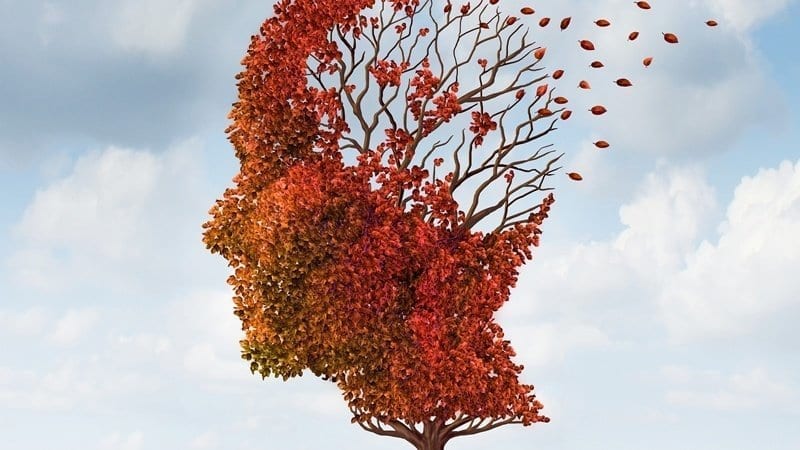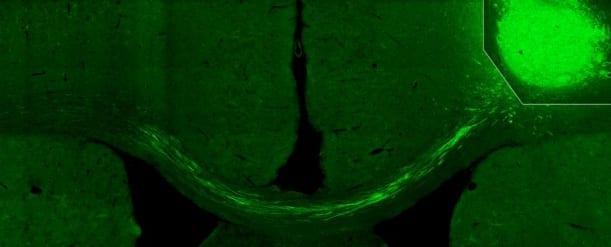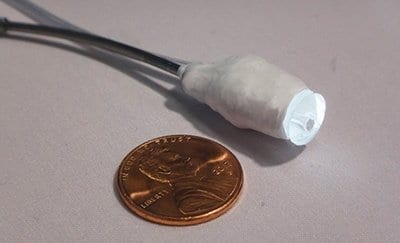
Treatments that prevent recurrence of types of stroke and dementia caused by damage to small blood vessels in the brain have moved a step closer, following a small study.
The drugs – called cilostazol and isosorbide mononitrate – are already used to treat other conditions, such as heart disease and angina.
This is the first time they have been tested in the UK for the treatment of stroke or vascular dementia.
High tolerance
A study involving more than 50 stroke patients found that patients tolerated the drugs, with no serious side effects, even when the drugs were given in full dose or in combination with other medicines.
Experts say the findings pave the way for larger studies to check if the treatments can prevent brain damage and reduce risk of stroke and vascular dementia.
Damage to small blood vessels in the brain is responsible for around a quarter of strokes. It is also a common cause of memory problems and dementia.
Around 400,000 people in the UK are affected but there are no specific treatments. Currently the only way to reduce risk of the disease is by controlling blood pressure and cholesterol, stopping smoking and managing symptoms of diabetes.
Promising early signs
A team led by the Universities of Edinburgh and Nottingham recruited 57 patients who had experienced a stroke caused by damaged small blood vessels, known as a lacunar stroke.
Patients took the two medicines either individually or in combination for up to nine weeks, in addition to usual treatments aimed at preventing further strokes.
They completed health questionnaires and had regular blood pressure checks, blood tests and brain scans.
The findings suggest the drugs are safe for use in stroke patients, taken alone or in combination, at least in the short term.
There were also signs that the treatments helped improve blood vessel function in the arms and brain, and may improve thinking skills, but the researchers stress that further studies are needed to test this. A larger study, called LACI-2, is already underway.
Effective treatment
The study, published in EClinicalMedicine, was funded primarily by the Alzheimer’s Society, with support from the UK Stroke Association, British Heart Foundation, the European Union, National Institutes of Health Research, and NHS Research Scotland.
We are delighted that the results of this trial show promise for treating a common cause of stroke and the commonest cause of vascular dementia, since currently there are no effective treatments. Further trials are underway.
Professor Joanna Wardlaw Centre for Clinical Brain Sciences
There hasn’t been a new drug for dementia for 15 years, so finding evidence that these cheap existing drugs could prevent dementia after a stroke would be a huge breakthrough. It’s promising to see that these two drugs are safe to use and we’ll be excited to see the results of the next stage of testing in a couple of years, which will show whether these drugs can be an effective treatment.
Dr James PickettHead of Research at Alzheimer’s Society
Learn more: Drugs to prevent stroke and dementia show promise
The Latest on: Stroke and vascular dementia
[google_news title=”” keyword=”stroke and vascular dementia” num_posts=”10″ blurb_length=”0″ show_thumb=”left”]
via Google News
The Latest on: Stroke and vascular dementia
- Flying into a rage ‘immediately damages blood vessels – raising your risk of heart attack and stroke’on May 1, 2024 at 8:03 am
FITS of fury can raise your death risk by damaging the heart and blood vessels, according to researchers. It means keeping a cool head could help you live longer. A study by Columbia University in ...
- National Institutes of Health (NIH) Study Finds Low Oxygen During Sleep and Sleep Apnea Linked to Epilepsy in Older Adultson May 1, 2024 at 6:49 am
Findings provide further insight into the complex relationship between sleep disorders and epilepsy ...
- Study finds network of inflammatory molecules may act as biomarker for risk of future cerebrovascular diseaseon May 1, 2024 at 2:00 am
A simple blood test could allow doctors to determine whether a person may be at higher risk for stroke or cognitive decline during their lifetime, according to a new UCLA Health study.
- Low oxygen during sleep and sleep apnea linked to epilepsy in older adultson April 30, 2024 at 1:41 pm
Sleep apnea and low oxygen levels while sleeping are associated with epilepsy that first occurs after 60 years of age, known as late-onset epilepsy, according to a new study published in Sleep.
- From ‘curing’ snoring to warding off dementia – all the surprising ways weight-loss jabs can BOOST your healthon April 29, 2024 at 4:46 am
IT’S impossible to escape the hype around weight-loss jabs. Whether that be the wild before-and-after pictures flooding social media. Or the feral gossip that follows everytime a celebrity ...
- Stroke Recovery: A Timelineon April 24, 2024 at 9:00 pm
How much progress a person can make and the timeline for their recovery depend on the type and location of the stroke and the patient’s age and overall health, says Richard Harvey, M.D., clinical ...
- Why Are Younger Adults Developing This Common Heart Condition?on April 23, 2024 at 10:07 am
New research suggests that A-fib may be more prevalent, and more dangerous, in people under 65 than previously thought.
- What is post-stroke depression and how can we address it? | Explainedon April 22, 2024 at 12:46 pm
Understanding post-stroke depression, its diagnosis, treatment, and impact on quality of life by Dr. Alok Kulkarni, a neuropsychiatrist.
- Dementia treatments: Medication, therapies and lifestyleon April 19, 2024 at 12:00 am
Dementia is the biggest health challenge facing the UK’s ageing population with 900,000 currently living with the disease and predicted to increase to 1.6 million by 2050. Now, for the first time, a ...
- Do I have dementia and how to test for iton April 19, 2024 at 12:00 am
Getting a dementia diagnosis is a long and complicated process, which can be a postcode lottery. In some cases where patients are under 65, it can take four years from recognising symptoms to ...
via Bing News










